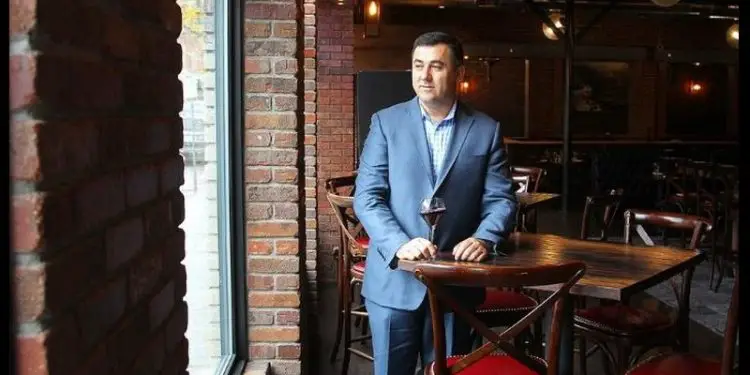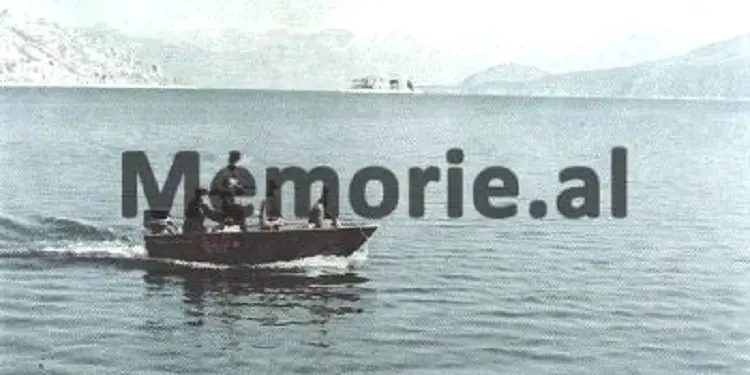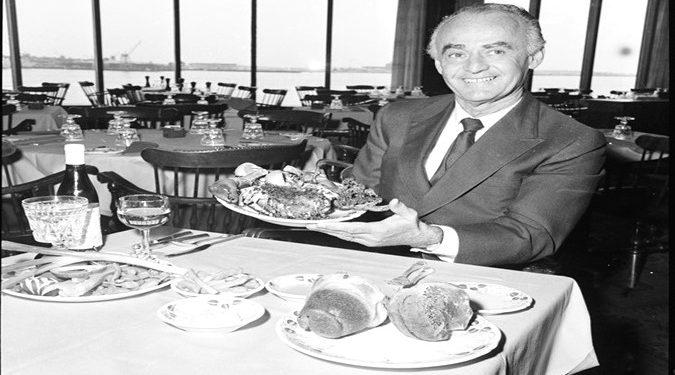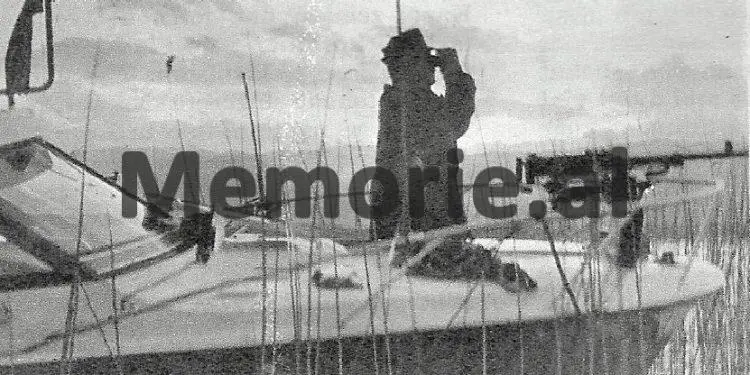“Memorie.al / Immigrants have sought refuge on the shores of America since the ship ‘Mayflower’ anchored in Plymouth in 1620. This is the story of a modern immigrant who arrived on American shores in search of freedom from persecution, danger, and poverty. Leo Keka embodies the American dream. At the age of 49, the Albanian owns and runs two popular restaurants in downtown Quincy. He is a proud American citizen, living in Milton, and his children attend Roman Catholic schools. Keka is living a dream that most of his customers could never imagine.
He grew up in a small town under one of the most repressive communist dictatorships of the Cold War era. He escaped from Albania by swimming across Lake Shkodra to Yugoslavia and was held for months in a refugee camp before a charity organization paid for his flight to the United States, where he gained his freedom. “Where else could I have done what I did?” Keka tells us as he checked the bar and dining area of the ‘Alba’ restaurant.
Leo Keka was born in 1968 and is one of four boys and one girl in his family. His father built houses, while his mother was a homemaker. Albania was poor and ruled by an ultra-communist regime allied with Mao Zedong’s Communist China. His family lived on a farm outside the old city of Shkodra. They were Catholic and had to secretly worship God at home. Dictator Enver Hoxha had closed all the churches and executed several priests.
“Sometimes there wasn’t any food,” recalls Keka. His parents synchronized with an improvised antenna to hear ‘Voice of America’ broadcast on a Chinese-made radio. As he grew up, he listened even more, “but we never talked to anyone about it,” he said. “You could end up in jail for listening!”
Like all young men, he was recruited into the army when he was 18 and was assigned to kitchen duty, where he discovered he had skills and enjoyed the work. “It was a way to survive,” he said.
By 1990, the collapse of the communist regime in the Soviet Union and other Eastern European countries was shaking Albania, and Keka was thinking of leaving to “seek a better world,” he says. Leo knew that if he succeeded, his family would be punished, but his father, Zef Keka, gave Leo his blessing.
One spring night, he crossed Lake Shkodra, which separated Albania from the Republic of Montenegro. Soldiers had shot others who tried to escape, but Keka succeeded in swimming into the Republic of Montenegro, mostly inhabited by Albanians. He was not welcomed by the official authorities and was held in prison with other Albanians, before being sent to a refugee camp protected in Belgrade, “now like European refugees.”
The staff of the U.S. embassy interviewed him and others. He was to be granted asylum in the U.S., Canada, or Australia, but would have to wait longer to go to the U.S. But sooner than expected, a charity intervened and paid for his ticket to the U.S. “The cost was $410,” says Keka. “It was the first time I saw an airplane!”
He was one of a dozen Albanians who flew to Frankfurt, West Germany, and then to New York City. They arrived on December 17, on a cold snowy night a week before Christmas. The only person Keka knew in the city or America was one of his mother’s brothers, who had escaped in the ’60s and lived in Queens.
“He knew nothing else about America, was 20 years old, and spoke not a word of English. But he was given a chance, and he was determined to give his best.
He looked for work in New York for two months, then went to Boston, hoping that his prospects would be better there. He went to the “Pier 4” restaurant, owned by Anthony, and told owner Anthony Athanas, ‘I need a job!’ Athanas, who was of Albanian descent, hired him as a dishwasher, then made him a waiter. Athanas bought Keka a pair of black shoes for this job.
Keka worked there for seven years, then moved to Grillin. He began to think about opening a pizza shop, as some immigrant relatives had done. One day in 2001, he was at Quincy Center and saw that a Chinese restaurant on Hancock Street was closing. He rented the place, and instead of a pizza shop, he opened ‘Alban’—’named in honor of my homeland, Albania,’ he tells us.
‘Alba’ soon became a great spot in the city’s restaurant sector. In 2006, Keka moved to another street near the current location of ‘Alba.’ When several nearby businesses closed and places became available, he bought another restaurant and named it Zef, in honor of his father.
Leo Keka was an American citizen when he opened ‘Alban’ and obtained his citizenship along with 400 other immigrants at Faneuil Hall in Boston. He said it was one of the highest points of his life, and both of his parents lived to see this achievement.
‘I had planned since my early years here (in the U.S.) to become a citizen,’ he says. ‘It’s a wonderful feeling. You know who you are. When you travel, you are treated differently.’
Now he says, ‘I am as American as America can be,’ which among other things means he is very interested in politics and is an enthusiastic football fan.
He has a season pass to watch the ‘New England Patriots.’ In past years, several players from the ‘Patriots’ and some members of their opponents have come to eat at ‘Alba.’ Also, one of the former Presidents of Albania dined there, to whom Keka served a traditional Albanian soup.
When he visits Albania, he meets Albanians who live in other places and are citizens there. ‘But they don’t talk about the countries they live in the same way I do,’ Keka told us. ‘When I go back and say I am American, I speak with pride about it. It’s what I have chosen to be.’ Memorie.al”














